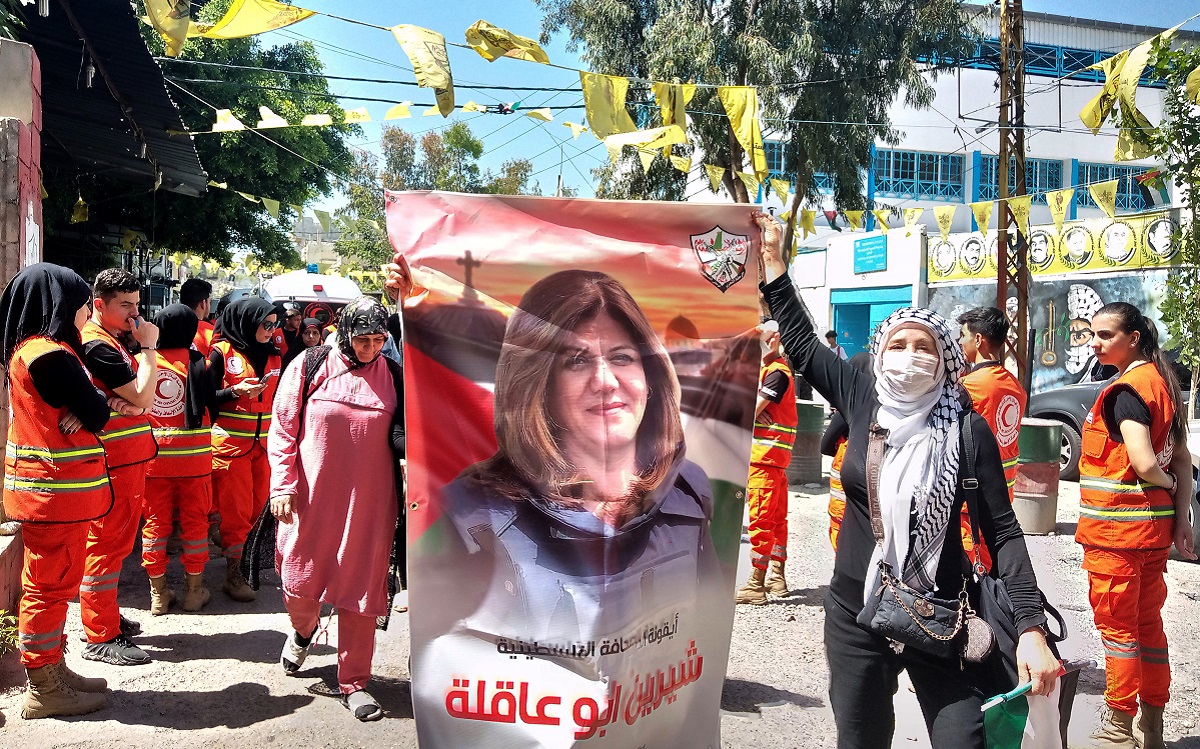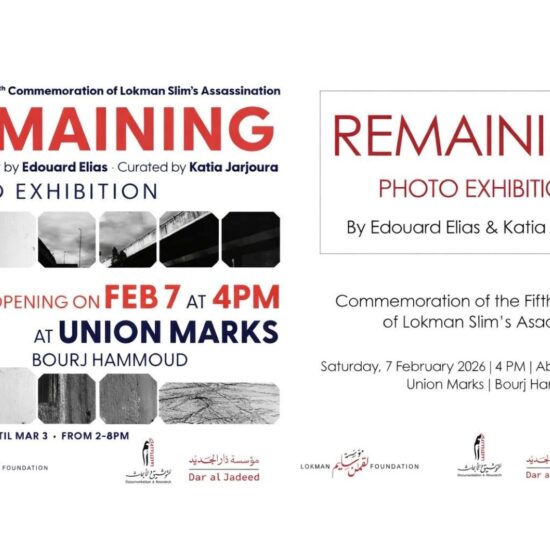
I have never met Shireen Abu Akleh. I only watched her on television. She was indeed a legend.
I was one of the girls holding their hairbrush in the mirror trying to imitate her. According to New York Times, young aspiring journalists did that quite a lot.
But to put that in a light-hearted obituary saying she “dies at 51”, after she was shot in the head by the Israeli army is unacceptable.
There is more meaning in the way she died and that is the story we all, regardless of where we were born, have to tell. With empathy. Because killing a journalist sends a message throughout the world, a message that the press is not free. And that affects all of us.
The way the international media reacted at the shock of Shireen being killed in Jenin reveals the lack of empathy in the way news journalism developed, and also how much tribute the Western world pays to orientalism.
The headline frames the story
“Ukrainian journalist killed by Russian airstrike” vs “Al Jazeera journalist killed in West Bank”.
There is a whole story included in just two headlines. The first was used by various English language outlets when several Ukrainian journalists were killed in Russian airstrikes.
The other headline, reading that Shireen Abu Akleh “was killed in the West Bank” is mathematically correct, but also misleading. It diminishes the value of the act of killing a journalist.
Many on social media compared the international coverage of Ukrainian journalists’ deaths and Shireen’s death, expressing awe at how different the headlines often were. And they were right to be appalled.
Such flat headlines reveal the hesitation and bias of the editor who makes the editorial decision based on incomplete information. The technique is meant to eliminate all information one is unsure of and stick with what they can prove.
But in this case, it reveals a cognitive bias that if one is Palestinian, there must have been something they’ve done to trigger the shooting from the Israeli army. It comes with a cognitive bias that the Israeli troops are organized and rational. This is the foundation of reporting on the Holy Land, consolidated by decades of only reporting attacks perpetrated by Palestinian assailants and ignoring the rampant violence and human rights violations committed by the state security forces and Jewish colonists against Palestinians. The latter receive far less international coverage than the “terrorist attacks”.
Back to Ukraine. Western journalists simply know and understand the Ukraine situation better, while the conflict in the Holy Land is psychologically more distant and less comprehensible to them. We have to go back to Edward Said to realize that orientalism is not only very much alive, but also evolving. It doesn’t only refer to narratives in discourse, but also the cultural environments that produce such narratives.
Standardizing news coverage leads to loss of meaning. Shireen Abou Akleh’s death and the way many international outlets decided to cover it should teach us, at least, that we need to overcome our cognitive bias.
To quote a guy who, a while ago, went viral on social media for being unable to articulate the reasons why the West could empathize with Ukraine but not with Syria or Afghanistan, Palestinians are not civilized.
It has nothing to do with civilization, in fact. Civilized means “from my civilization”, and “uncivilized” means “from civilizations that are functioning on different rules than mine which I don’t understand and can’t trust”. This type of thinking easily leads to racism.
Hesitating to say what happened and to ask the right questions, to simplify and diminish the story of Shireen Abou Akleh’s death, is racism. It shows, by comparison to Ukraine where international media outlets can easily blame Russia, that some Western journalists – those who were in charge of covering yesterday’s incident at least – hesitated to blame the Israeli government and distrusted Palestinian journalists’ accounts of what really happened.
That is reflected in the way the narrative of the “exchange of fire between Israeli troops and Palestinian gunmen” was repeated without being questioned. And, that is what readers in Tokyo read in the international media. It implies that it was an accident, a stray bullet. And it wasn’t.
We need to talk about our biases
It is not 1980 anymore. We are no longer in the age of standardized journalism when we parachuted “our man” in a field to produce a series of dispatches that contain a certain number of characters.
We no longer have article length restrictions that force us to lose so-called useless words and not waste the publishers’ money on international calls. We now have attention spans to worry about, but that is a different matter: empathy works better to increase attention span than a flat simplified report. As reader, we don’t need short dry reports, we need to feel, understand and relate.
Our job, as journalists, is no longer about being short, concise and accurate. It’s about being comprehensive and empathetic, about paining the right picture and about providing meaning.
Technology has pushed us, journalists, towards data, towards digital forensics and satellite imagery. We include innovation in our work every day. We produce investigations by watching videos and corroborating them with satellite imagery. For the 1980s and 1990s, this seemed science fiction.
Yet, emotionally we are stuck at the same level. In the rush of the events, journalists produce flat, simplified reports, forgetting about empathy and using “official sources”, because we were taught in school that they are the only ones reliable and unbiased. Yet, we now know better that governments lie, they hide information and twist the truth.
It was sad and enraging for everyone in the Middle East to watch the narrative of “exchange of fire” spreading throughout the world just because it was the narrative an Israeli official source produced. Some journalists decide to trust that source more than their colleagues who witnessed it all. But they were Palestinian journalists working for Arab media, therefore they did not trust their accounts.
We have a responsibility as journalists to question our own biases and motives. We need to start changing the way we approach news coverage and to understand how we frame the news based on our personal cultural background and education.
Standardizing news coverage leads to loss of meaning. Shireen Abou Akleh’s death and the way many international outlets decided to cover it should teach us at least that we should overcome our cognitive biases.
Ana Maria Luca is the former managing editor of @NOW_leb. She a PhD researcher in Anthropology at the University of Perugia, Italy. She tweets @AnaMariaLuca79.








